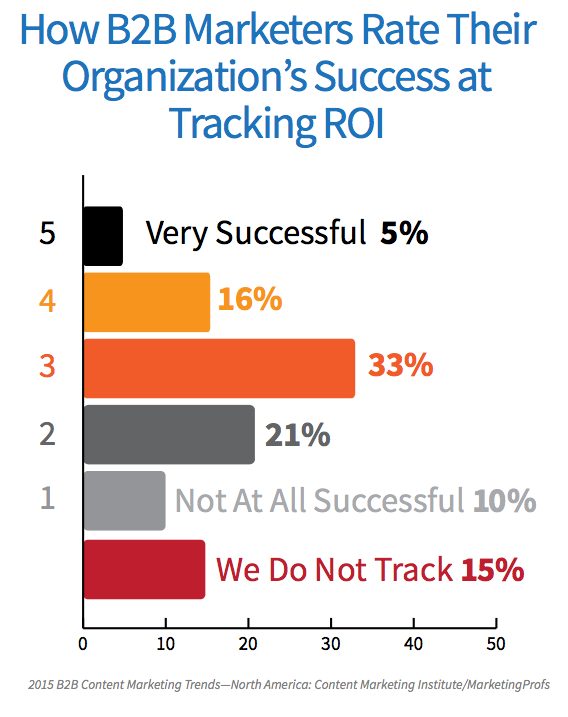
Get your FREE 30-day trial.
Please complete all fields.
Content Marketing Institute and MarketingProfs recently released the fifth annual B2B Content Marketing Benchmarks, Budgets, and Trends-North America report. The report is full of statistics and trends in content marketing, but here are some key takeaways for content marketers when it comes to building a cohesive customer journey.
1. Document your content marketing strategy.
Only 35% of content marketers have a documented content marketing strategy. 60% of those who have a documented strategy, though, say their content marketing is highly effective. Only 32% of those with a verbal content marketing strategy would say their content is highly effective. Take a look at other differences between companies with a well-documented content marketing strategy and those without.

2. Break through the clutter.
The amount of content being created is growing immensely. 70% of marketers are creating more content than last year.
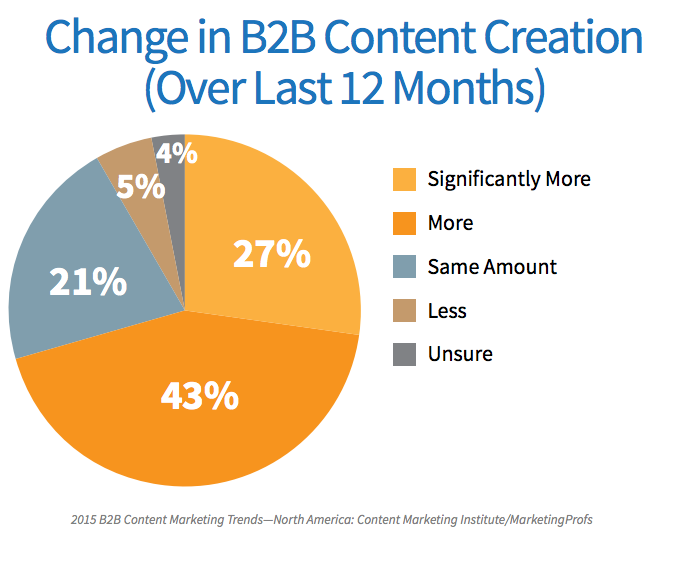
With this growth, it is more important than ever to create content that breaks through the clutter and stands out. Look for new ways to engage your audience with your content.
3. Quality still trumps quantity.
42% of content marketers say they publish new content daily or multiple times per week. 31% of "effective marketers," though, publish new content multiple times per week and 32% of marketers with a documented content marketing strategy publish new content multiple times per week.
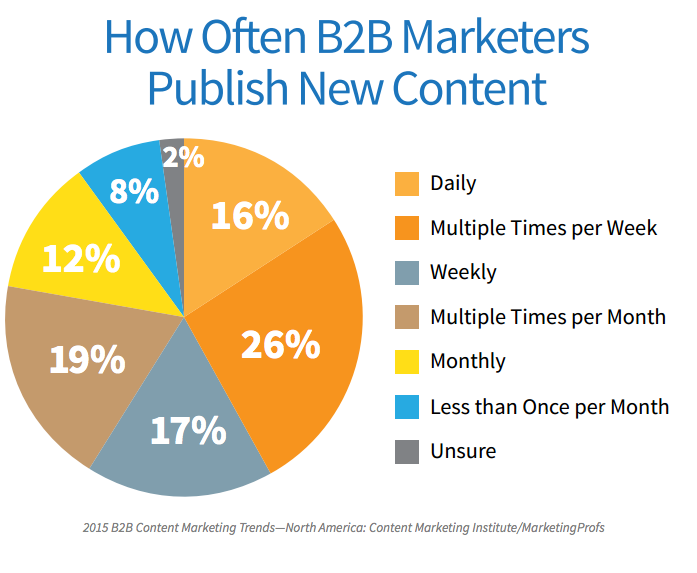
While effective content marketers are obviously producing a large amount of new content, something can still be said for producing high-quality content. You can't just be a content factory. Creating quality, engaging content with a clear objective should still take precedence over creating just another e-book.
4. LinkedIn and Twitter top the most effective social media platforms.
63% of marketers rated LinkedIn as effective or very effective. Twitter and YouTube came in second and third at 55% and 48% respectively.
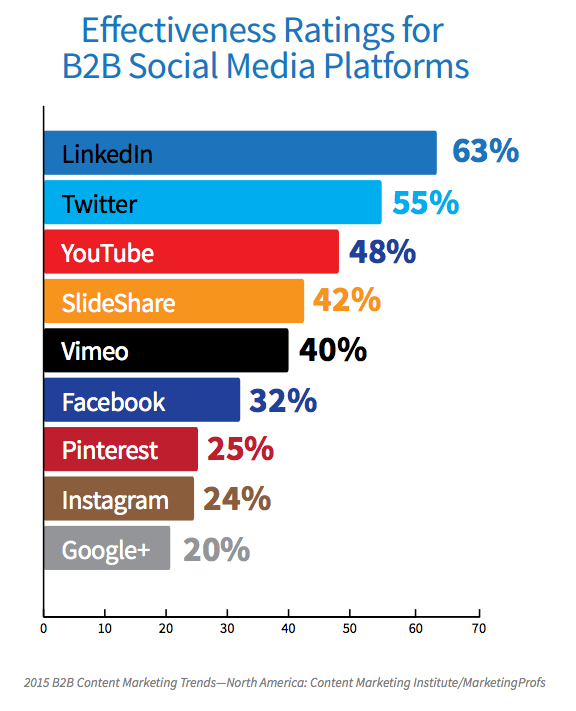
5. Brand awareness, lead generation, and engagement remain the top content marketing goals for marketers.
84% of marketers say "brand awareness" is the most important goal, and lead generation came in second at 83%.
CMI noted, though, that "customer evangelism" was new this year to the list of goals. This goes right along with Jay Baer's Youtility concept and using your content to create customer evangelists. Customer loyalty ranked sixth with 69% of marketers deeming it important.
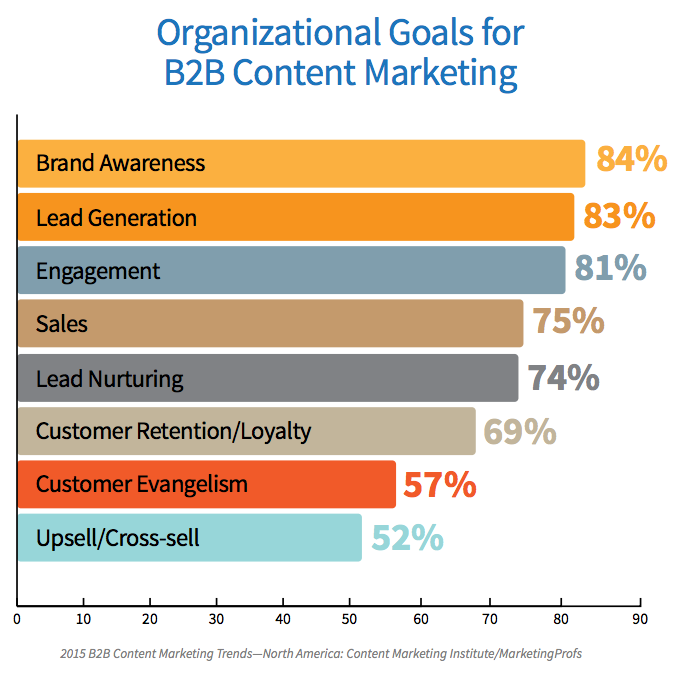
6. Website traffic, though, continues to be the most-used metric to assess content marketing success.
Over 60% of marketers cite website traffic as their most important content marketing metric. Sales lead quality was second at 49%.

This is really interesting when you compare it to the chart above-organizational goals for content marketing. Organizational goals do not align very well with the top metrics content marketers are using to assess their success. Metrics that help assess brand awareness like "benchmark life of company awareness", "benchmark lift of product/service awareness", and customer renewal were all cited by fewer than 25% of B2B marketers as a metric they use to assess success. This may be one of the explanations to #7 below.
7. Only 21% of marketers are successful at tracking the ROI of their content marketing program.
This means the majority of content marketers are not successfully tracking ROI. Only 35% of marketers with a documented content marketing strategy are even successful at tracking ROI.
I believe this solution comes with greater alignment between organizational goals and metrics used to track success. Marketers first need to be tracking the right things. Take a deeper look at your core key performance indicators and how you measure them. Implement a process to measure actionable metrics that can demonstrate cause and effect relationships.
